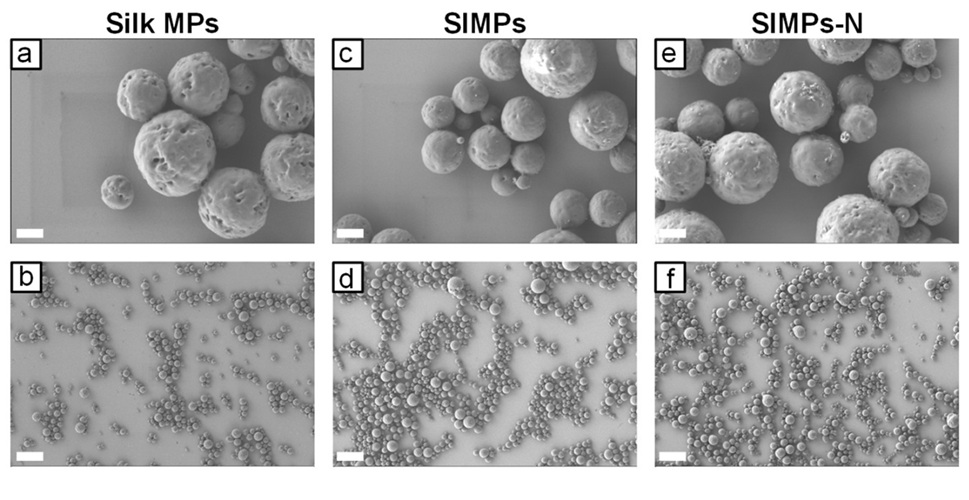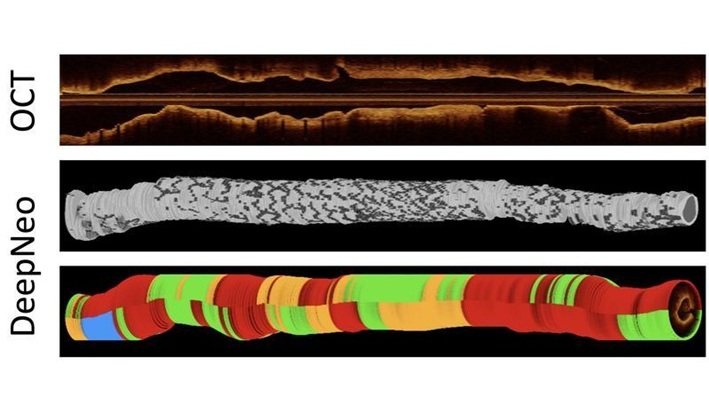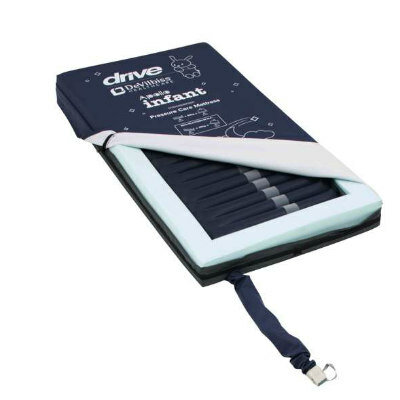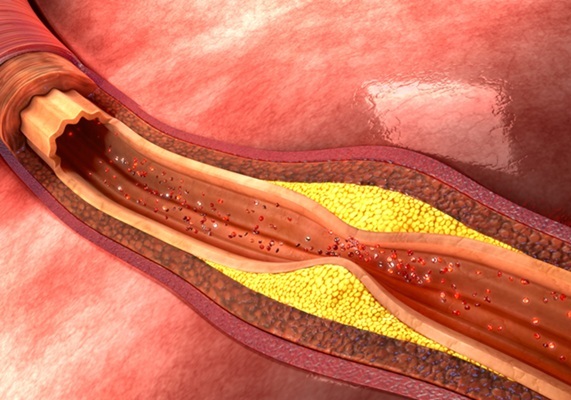Common Drug Found to Prevent Adhesions
|
By HospiMedica staff writers Posted on 08 Feb 2005 |
In an accidental discovery, researchers have found that short-term use of the COX-2 inhibitor Celebrex, a drug for arthritis whose use is now under investigation, can prevent adhesions following surgery. The finding was reported in the January 25, 2000, issue of Annals of Surgery.
Adhesions develop in 55-90% of patients undergoing surgery, causing pain and complications. Adhesions are a major cause of bowel obstruction and infertility, so repeat surgery is often required to cut through them. No good way to prevent them has been found. Now, researchers studying the effects of Celebrex on liver rejuvenation after injury happened to notice there were no adhesions, so they decided to conduct a formal experiment. After undergoing surgery, groups of six to 18 mice received either Celebrex or another COX-2 inhibitor, Vioxx, nonselective COX inhibitors (such as ibuprofen and aspirin), or placebo for 10 days.
At the end of 10 days, the placebo group had obvious abdominal adhesions. Mice receiving COX inhibitors had a slight reduction in adhesions, those receiving nonselective COX inhibitors had a larger reduction, and 55% (six of 11) of those given Celebrex were completely adhesion-free. After observing the group for another 25 days, the adhesion score (based on the extent and removal difficulty) was only 1 in the Celebrex group, 5 in the Vioxx group, 8 in the aspirin group, and 11 in the placebo group.
Currently, the most common method of preventing adhesions uses a barrier agent or gel to separate the abdominal surfaces and prevent them from binding together. However, these treatments can suppress the immune system, cause infection, and impair healing.
"If Celebrex works in humans, you could give it to patients on the day of abdominal surgery and the 10 days after surgery,” noted senior investigator Dr. Mark Puder, of the department of surgery and the vascular biology program at Children's Hospital Boston (MA, USA). Dr. Puder believes that COX-2 inhibitors could also reduce adhesions after gynecologic and thoracic surgery.
Related Links:
Children's Hospital Boston
Adhesions develop in 55-90% of patients undergoing surgery, causing pain and complications. Adhesions are a major cause of bowel obstruction and infertility, so repeat surgery is often required to cut through them. No good way to prevent them has been found. Now, researchers studying the effects of Celebrex on liver rejuvenation after injury happened to notice there were no adhesions, so they decided to conduct a formal experiment. After undergoing surgery, groups of six to 18 mice received either Celebrex or another COX-2 inhibitor, Vioxx, nonselective COX inhibitors (such as ibuprofen and aspirin), or placebo for 10 days.
At the end of 10 days, the placebo group had obvious abdominal adhesions. Mice receiving COX inhibitors had a slight reduction in adhesions, those receiving nonselective COX inhibitors had a larger reduction, and 55% (six of 11) of those given Celebrex were completely adhesion-free. After observing the group for another 25 days, the adhesion score (based on the extent and removal difficulty) was only 1 in the Celebrex group, 5 in the Vioxx group, 8 in the aspirin group, and 11 in the placebo group.
Currently, the most common method of preventing adhesions uses a barrier agent or gel to separate the abdominal surfaces and prevent them from binding together. However, these treatments can suppress the immune system, cause infection, and impair healing.
"If Celebrex works in humans, you could give it to patients on the day of abdominal surgery and the 10 days after surgery,” noted senior investigator Dr. Mark Puder, of the department of surgery and the vascular biology program at Children's Hospital Boston (MA, USA). Dr. Puder believes that COX-2 inhibitors could also reduce adhesions after gynecologic and thoracic surgery.
Related Links:
Children's Hospital Boston
Latest Surgical Techniques News
- DNA Origami Improves Imaging of Dense Pancreatic Tissue for Cancer Detection and Treatment
- Pioneering Sutureless Coronary Bypass Technology to Eliminate Open-Chest Procedures
- Intravascular Imaging for Guiding Stent Implantation Ensures Safer Stenting Procedures
- World's First AI Surgical Guidance Platform Allows Surgeons to Measure Success in Real-Time
- AI-Generated Synthetic Scarred Hearts Aid Atrial Fibrillation Treatment
- New Class of Bioadhesives to Connect Human Tissues to Long-Term Medical Implants
- New Transcatheter Valve Found Safe and Effective for Treating Aortic Regurgitation
- Minimally Invasive Valve Repair Reduces Hospitalizations in Severe Tricuspid Regurgitation Patients
- Tiny Robotic Tools Powered by Magnetic Fields to Enable Minimally Invasive Brain Surgery
- Magnetic Tweezers Make Robotic Surgery Safer and More Precise
- AI-Powered Surgical Planning Tool Improves Pre-Op Planning
- Novel Sensing System Restores Missing Sense of Touch in Minimally Invasive Surgery
- Headset-Based AR Navigation System Improves EVD Placement
- Higher Electrode Density Improves Epilepsy Surgery by Pinpointing Where Seizures Begin
- Open-Source Tool Optimizes Placement of Visual Brain Implants
- Easy-To-Apply Gel Could Prevent Formation of Post-Surgical Abdominal Adhesions
Channels
Critical Care
view channel
AI Model Analyzes Patient Data to Diagnose Multiple Sclerosis With 90% Accuracy
Multiple sclerosis (MS) is a chronic inflammatory condition affecting the central nervous system. Most patients initially experience the relapsing-remitting form (RRMS), characterized by periods of symptom... Read more
Magnetically Navigable Microparticles Enable Targeted Drug Delivery
Abdominal aortic aneurysms (AAA) can be life-threatening if not treated and result in nearly 10,000 deaths annually. Researchers working to improve treatments for AAA could now make it possible for doctors... Read more
AI-Powered Algorithm Automates Analysis of Coronary Stents After Implantation
Every year, over three million people globally receive stents to open blocked blood vessels caused by heart disease. However, monitoring the healing process after stent implantation remains a significant challenge.... Read morePatient Care
view channel
Portable Biosensor Platform to Reduce Hospital-Acquired Infections
Approximately 4 million patients in the European Union acquire healthcare-associated infections (HAIs) or nosocomial infections each year, with around 37,000 deaths directly resulting from these infections,... Read moreFirst-Of-Its-Kind Portable Germicidal Light Technology Disinfects High-Touch Clinical Surfaces in Seconds
Reducing healthcare-acquired infections (HAIs) remains a pressing issue within global healthcare systems. In the United States alone, 1.7 million patients contract HAIs annually, leading to approximately... Read more
Surgical Capacity Optimization Solution Helps Hospitals Boost OR Utilization
An innovative solution has the capability to transform surgical capacity utilization by targeting the root cause of surgical block time inefficiencies. Fujitsu Limited’s (Tokyo, Japan) Surgical Capacity... Read more
Game-Changing Innovation in Surgical Instrument Sterilization Significantly Improves OR Throughput
A groundbreaking innovation enables hospitals to significantly improve instrument processing time and throughput in operating rooms (ORs) and sterile processing departments. Turbett Surgical, Inc.... Read moreHealth IT
view channel
Printable Molecule-Selective Nanoparticles Enable Mass Production of Wearable Biosensors
The future of medicine is likely to focus on the personalization of healthcare—understanding exactly what an individual requires and delivering the appropriate combination of nutrients, metabolites, and... Read more
Smartwatches Could Detect Congestive Heart Failure
Diagnosing congestive heart failure (CHF) typically requires expensive and time-consuming imaging techniques like echocardiography, also known as cardiac ultrasound. Previously, detecting CHF by analyzing... Read moreBusiness
view channel
Expanded Collaboration to Transform OR Technology Through AI and Automation
The expansion of an existing collaboration between three leading companies aims to develop artificial intelligence (AI)-driven solutions for smart operating rooms with sophisticated monitoring and automation.... Read more
















